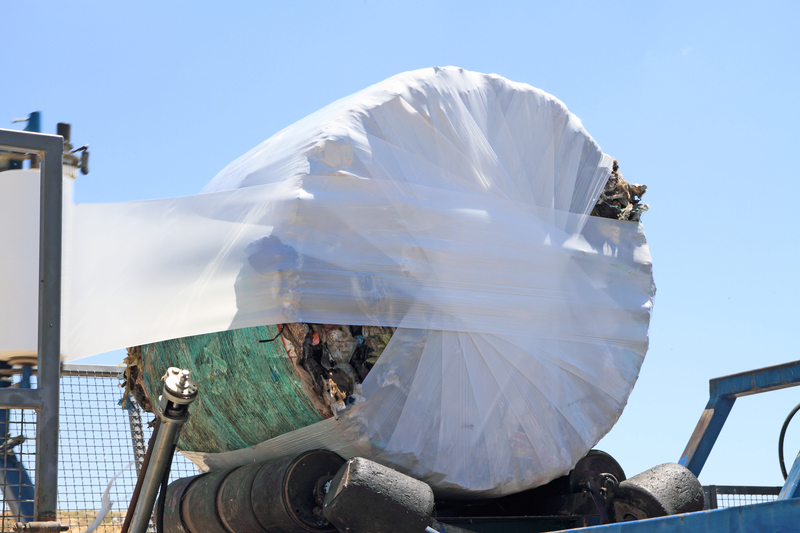In an era where sustainability is key, eco-friendly restaurant practices are gaining momentum. A major aspect of this movement is food waste recycling. This practice not only minimizes the environmental impact but also optimizes resources and reduces costs. In this article, we'll delve into various eco-friendly strategies that restaurants can implement to effectively recycle food waste.
Understanding Food Waste in Restaurants
The restaurant industry is notorious for food wastage, with tons of food ending up in landfills every year. This not only contributes to the loss of valuable resources but also exacerbates environmental issues such as greenhouse gas emissions. By adopting food waste recycling techniques, restaurants can play a significant role in mitigating these issues.

Benefits of Food Waste Recycling in Restaurants
- Environmental Impact: Recycling food waste significantly reduces the emission of methane, a potent greenhouse gas, thus contributing to a healthier planet.
- Cost Savings: By efficiently managing food waste, restaurants can cut down on waste disposal costs and improve their bottom line.
- Enhanced Reputation: Consumers are becoming increasingly eco-conscious. Implementing sustainable practices can improve a restaurant's public image and attract more customers.
- Nutrient Recycling: Food waste recycling enables the return of valuable nutrients to the soil, promoting a healthier agricultural cycle.
Strategies for Effective Food Waste Recycling
Transitioning to a sustainable waste management system doesn't happen overnight. Here are effective strategies to help restaurants recycle food waste:
1. Implementing a Waste Audit
Conducting a waste audit is the first step towards sustainable restaurant management. By analyzing the types and quantities of waste produced, restaurants can identify key areas for improvement. An audit helps to pinpoint which foods are wasted most frequently, allowing management to adapt menu offerings and portion sizes accordingly.
2. Setting Up a Segregation System
It is crucial to establish a segregation system for different types of waste. This includes creating separate bins for organic waste, recyclable materials, and non-recyclable waste. Clearly labeled bins and training staff on proper waste segregation can significantly enhance the efficiency of food waste recycling.
3. Partnering with Local Composting Facilities
Partnering with a local composting facility is an excellent way to manage organic waste. Composting turns food scraps into nutrient-rich soil, which can be used to support eco-friendly agricultural practices. Engaging with local farms not only recycles nutrients but also strengthens community ties.
4. Utilizing Technology in Waste Management
Technology plays a crucial role in modernizing waste management processes. Several software solutions can track food waste patterns, enabling restaurants to make informed decisions. Advanced composting machines can also be installed on-site to expedite the decomposition process, making it easier for restaurants to handle waste independently.
5. Educating Staff and Encouraging Customer Participation
Staff education is paramount in ensuring the success of food waste recycling programs. Regular training sessions are essential to keep employees informed about the latest practices and technologies in waste management. Additionally, consumers can be encouraged to participate by offering incentives for bringing their compostable materials from home or choosing sustainable dining options.

Case Studies: Successful Food Waste Recycling in Restaurants
Many restaurants around the world are setting benchmarks in sustainable food waste management. Let's explore a few successful examples:
Blue Hill, New York
Blue Hill has implemented an innovative approach to reducing food waste by designing a no-waste menu. The restaurant uses every part of its ingredients, such as repurposing vegetable scraps for stocks and sauces. This practice not only minimizes waste but also creates unique and flavorful dishes.
Grill Market, Reykjavik
In Reykjavik, Grill Market stands out for its commitment to recycling food waste into organic compost. The restaurant works closely with a local farm, providing them with nutrient-rich compost that supports organic farming practices. This collaboration has successfully created a circular economy within the community.
Inspiring a Change in the Industry
The growing trend of eco-friendly restaurant practices is inspiring other businesses within the hospitality industry. By focusing on food waste recycling, restaurants can lead the charge towards a more sustainable and environmentally friendly future.
Conclusion
Adopting food waste recycling practices in restaurants is not only beneficial for the environment but also advantageous from a business standpoint. By implementing effective strategies and promoting sustainability, restaurants can significantly reduce their environmental footprint while attracting an eco-conscious clientele. The journey toward a greener restaurant industry begins with each establishment taking proactive steps to manage its waste responsibly.
Incorporating these practices, from conducting waste audits to leveraging technology, can transform waste into a valuable resource, contributing to a healthier planet for future generations. Embrace these practices to usher in a new era of sustainable dining.